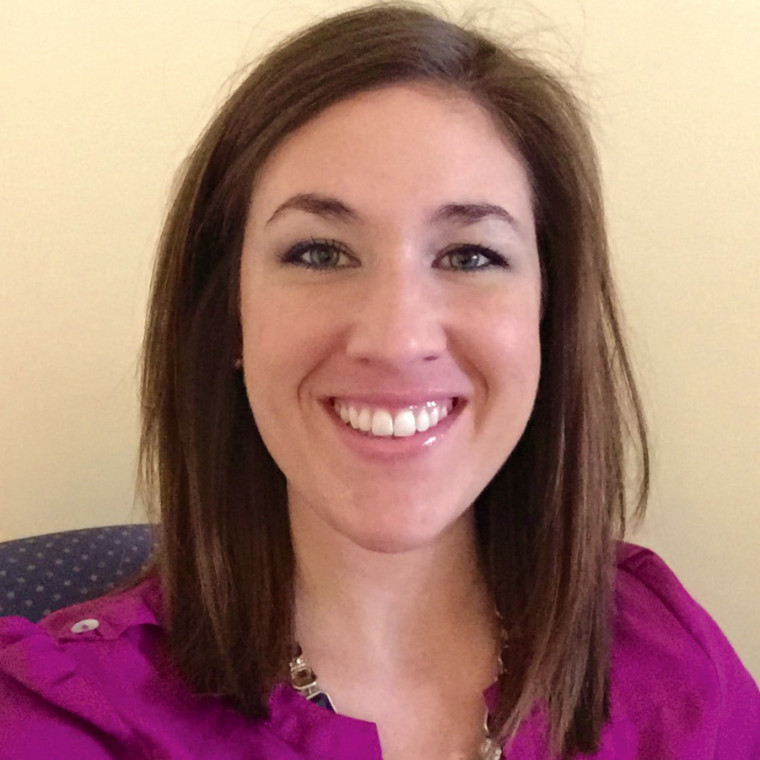New Hampshire’s School Psychologist of the Year
Open gallery

Kate Grieve Ed.S. ’09
Kate Grieve begins her workday with a big cup of coffee, sipping the steaming brew while she reviews her hectic schedule.
As district psychologist for the Raymond School District in New Hampshire, she champions the academic, mental, and emotional health of students from preschool through high school.
“I honestly feel that I was born for this job,” says Grieve. “I love the diverse nature of my work—the opportunity to collaborate and strategize with colleagues, to intervene and educate young people in ways that create meaningful change.”
In May, the New Hampshire Association of School Psychologists named Grieve the state’s 2015 School Psychologist of the Year, praising her dedication and “amazing and infectious energy” to help children achieve their best in school, at home, and in life.
Exceptionally organized, Grieve juggles teacher referrals; student evaluations and tests results; report writing; and outreach to teachers, parents, nutritionists, and mental health professionals. She formulates methods to help students struggling with challenges like learning disabilities and autism, depression and anxiety, and underdeveloped social skills.
“My favorite part of the day is working one-on-one with students in my office,” says Grieve. “I explain what tests reveal about their individual learning styles, including their strengths and weaknesses. We focus on solutions, not problems.”
Grieve didn’t originally set out to be a school psychologist. When she finished her undergraduate studies in Vermont, she and her now husband, Brian, headed to Portland, where the Marriage, Couple, and Family Therapy program at Lewis & Clark’s Graduate School of Education and Counseling caught her attention. But a heart-to-heart conversation with her uncle, a veteran school psychologist in Florida, nudged her in a different direction. “My mother is a high school math teacher, so education has always been a big part of my life,” she says. “My uncle’s passion for his work opened my eyes to school psychology.” She completed the Lewis & Clark program in 2009.
Shortly thereafter, Grieve began her career as a school psychologist at Iber Holmes Gove Middle School in Raymond, New Hampshire. “I was lucky to pursue leadership roles early on,” she says. “For example, with the support of my colleagues, I became the chair of the student intervention team and an antibullying committee.” Her leadership qualities, coupled with school budget cuts and staff reductions, led to her promotion as district psychologist for Raymond’s 1,500 students two years ago.
Today, Grieve’s No. 1 priority is boosting reading competency and comprehension. “Research shows that people who can’t read are more likely to experience other problems like poverty, emotional stagnation, mental illness, and incarceration,” she says.
Looking ahead to the next school year, Grieve aims to improve communication between educators in all three schools, making transitions easier for students as they move forward. She’ll head a committee to improve student intervention teams—groups of teachers, counselors, and administrators—who meet and devise plans for at-risk students in need of intensive support.
“I’m also planning a two-part professional development series that will train teachers and counselors about executive function skills,” she says. Research shows that these skills—such as time management, memory enhancement, prioritization, organization, and self-awareness techniques—are important factors in student success.
Tackling her increased responsibilities with confidence and gratitude, Grieve remembers valuable lessons from Lewis & Clark. “A former professor, Ruth Gonzalez, told me it was okay if I went into the field not knowing everything. She said that as long as I could build and maintain relationships with students, parents, and staff, everything else would fall into place. I’ve learned she was right.”
—by Pattie Pace
More L&C Magazine Stories
Lewis & Clark Magazine is located in McAfee on the Undergraduate Campus.
MSC: 19
email magazine@lclark.edu
voice 503-768-7970
fax 503-768-7969
The L&C Magazine staff welcomes letters and emails from readers about topics covered in the magazine. Correspondence must include your name and location and may be edited.
Lewis & Clark Magazine
Lewis & Clark
615 S. Palatine Hill Road MSC 19
Portland OR 97219

